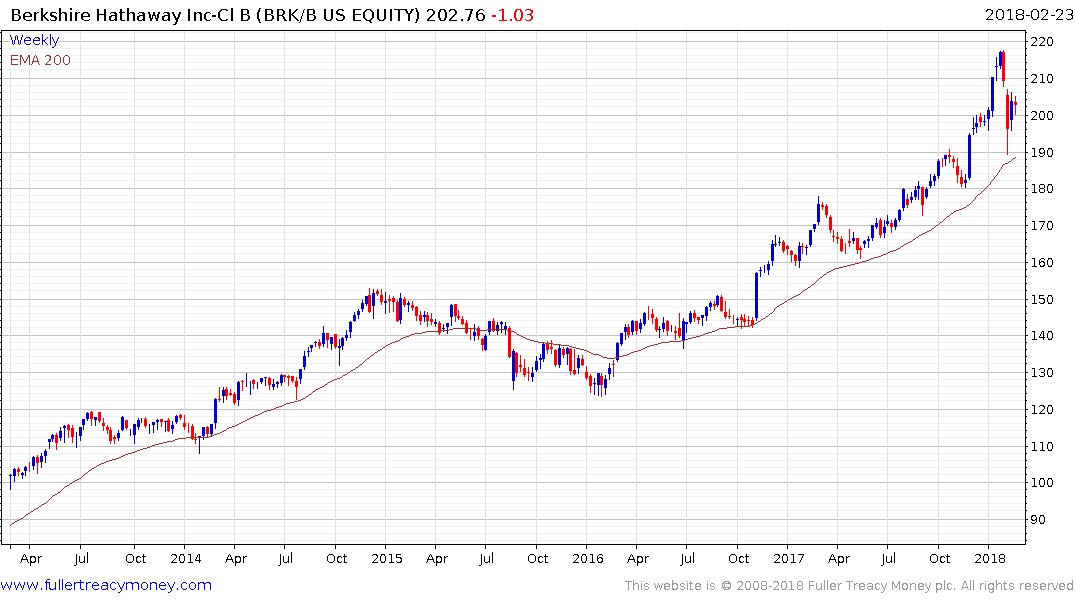Berkshire Hathaway Shareholder Letter
Thanks to a subscriber for this year’s letter by Warren Buffett. Here is a section:
The new rule says that the net change in unrealized investment gains and losses in stocks we hold must be included in all net income figures we report to you. That requirement will produce some truly wild and capricious swings in our GAAP bottom-line. Berkshire owns $170 billion of marketable stocks (not including our shares of Kraft Heinz), and the value of these holdings can easily swing by $10 billion or more within a quarterly reporting period. Including gyrations of that magnitude in reported net income will swamp the truly important numbers that describe our operating performance. For analytical purposes, Berkshire’s “bottom-line” will be useless.
The new rule compounds the communication problems we have long had in dealing with the realized gains (or losses) that accounting rules compel us to include in our net income. In past quarterly and annual press releases, we have regularly warned you not to pay attention to these realized gains, because they – just like our unrealized gains – fluctuate randomly.
That’s largely because we sell securities when that seems the intelligent thing to do, not because we are trying to influence earnings in any way. As a result, we sometimes have reported substantial realized gains for a period when our portfolio, overall, performed poorly (or the converse).
This mark to market rule which Buffett is speaking about will have a large impact not only on Berkshire Hathaway but potentially also on banks that conduct trading and investment banking activities. That will likely contribute to them representing high beta plays on stock market performance.

As one would therefore expect Berkshire Hathaway has performed at least in line with the stock market and is currently bouncing from the region of the trend mean.

The S&P500 Investment Banking and Brokerage Index also bounced impressively two weeks ago from the region of the trend mean.


